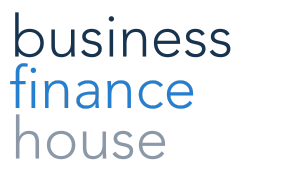Managing VAT finance can be a daunting task for businesses of all sizes. From navigating complex regulations to ensuring timely payments, there are numerous pitfalls that can trip up even the most diligent entrepreneurs. Let’s explore five most common VAT finance mistakes and actionable strategies to avoid them, ultimately paving the way for financial success.
5 Common VAT Finance Mistakes & Considerations
1. Late VAT Payments
One of the most prevalent mistakes businesses make is missing deadlines for VAT payments. Late payments not only incur penalties but can also strain cash flow and damage relationships with suppliers. To avoid this, set up reminders well in advance of payment deadlines and consider utilising software solutions to automate payment processes. By staying organised and proactive, you can ensure timely VAT payments and avoid unnecessary fees.
2. Inaccurate VAT Returns
Inaccuracies in VAT returns can lead to costly errors and potential audits from tax authorities. To mitigate this risk, maintain meticulous records of all transactions and double-check calculations before submitting returns. Investing in reliable accounting software can streamline this process and reduce the likelihood of errors. Additionally, consider seeking advice from tax professionals to ensure compliance with VAT regulations and minimise the risk of inaccuracies.

3. Misinterpretation of VAT Regulations
VAT regulations are notoriously complex and subject to frequent changes, making it easy for businesses to misinterpret or overlook crucial requirements. To avoid this mistake, stay informed about updates to VAT laws and seek guidance from experts when necessary. Online resources and training programs can also provide valuable insights into navigating VAT regulations effectively. By staying vigilant and proactive, you can avoid costly compliance errors and minimise the risk of penalties.
4. Failure to Claim VAT Refunds
Many businesses overlook opportunities to claim VAT refunds owed to them, resulting in lost revenue and decreased cash flow. To avoid this mistake, implement robust systems for tracking VAT expenses and ensure that all eligible refunds are claimed promptly. Consider working with a VAT specialist who can identify potential refund opportunities and help you maximise your returns. By actively pursuing VAT refunds, you can optimise your cash flow and strengthen your financial position.
5. Lack of VAT Financing Strategy
Managing cash flow amidst VAT obligations can be challenging, especially for businesses with limited resources. Failing to implement a VAT financing strategy can lead to liquidity issues and hinder growth opportunities. To avoid this mistake, explore options such as VAT loans, which provide short-term funding to cover VAT payments while preserving cash flow for other business needs. By leveraging VAT financing solutions, you can effectively manage your financial obligations and position your business for success.
Navigating VAT finance requires careful attention to detail and proactive planning. By avoiding these common mistakes and implementing effective strategies, you can optimise your VAT finance processes and achieve greater financial stability. Remember to stay informed about VAT regulations, leverage technology to streamline processes, and seek expert advice when needed. With the right approach, you can navigate the complexities of VAT finance with confidence and drive your business toward long-term success.
Learn how Business Finance House can provide tailored business finance solutions to support your financial needs. Whether you’re looking to streamline cash flow or maximise VAT refunds, our team of experts is here to help.





